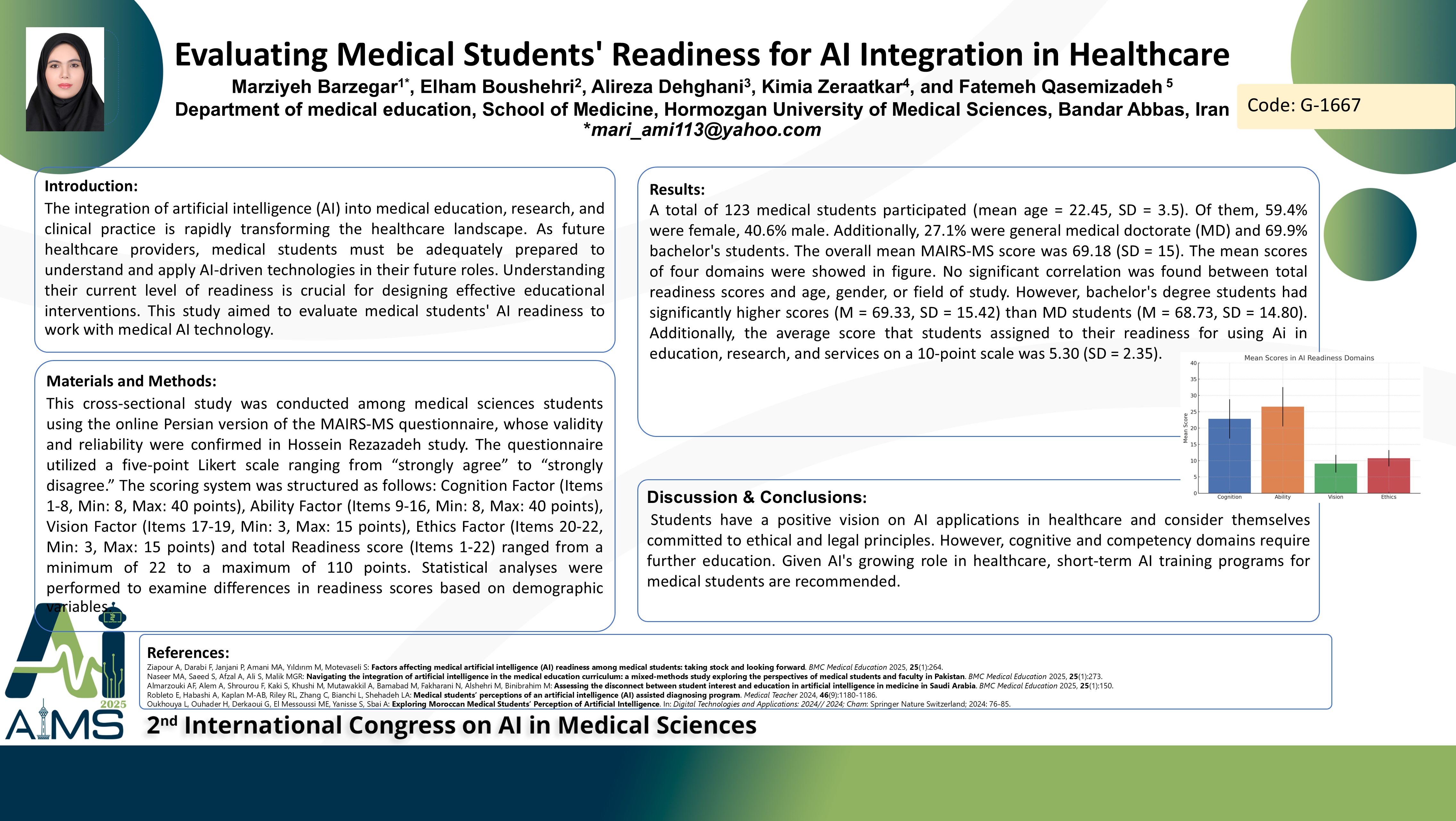ارزیابی آمادگی دانشجویان پزشکی برای ادغام هوش مصنوعی در سلامت
کد: G-1667
نویسندگان: Marziyeh Barzegar * ℗, Elham Boushehri, Alireza Dehghani, Kimia Zeraatkar, Fatemeh Qasemizadeh
زمان بندی: زمان بندی نشده!
برچسب: دستیار مجازی هوشمند
دانلود: دانلود پوستر
خلاصه مقاله:
خلاصه مقاله
Background and Aims: The integration of artificial intelligence (AI) into medical education, research, and healthcare requires assessing medical students’ readiness to adopt AI-based technologies. This study aimed to evaluate medical students' AI readiness to work with medical AI technology. Method: This cross-sectional study was conducted among medical sciences students using the online Persian version of the MAIRS-MS questionnaire, whose validity and reliability were confirmed in Hossein Rezazadeh study. The questionnaire utilized a five-point Likert scale ranging from “strongly agree” to “strongly disagree.” The scoring system was structured as follows: Cognition Factor (Items 1-8, Min: 8, Max: 40 points), Ability Factor (Items 9-16, Min: 8, Max: 40 points), Vision Factor (Items 17-19, Min: 3, Max: 15 points), Ethics Factor (Items 20-22, Min: 3, Max: 15 points) and total Readiness score (Items 1-22) ranged from a minimum of 22 to a maximum of 110 points. Statistical analyses were performed to examine differences in readiness scores based on demographic variables. Results: A total of 123 medical students participated (mean age = 22.45, SD = 3.5). Of them, 59.4% were female, 40.6% male. Additionally, 27.1% were general medical doctorate (MD) and 69.9% bachelor's students. The overall mean MAIRS-MS score was 69.18 (SD = 15). The mean scores of cognitive, competency, vision and ethics domains were (22.81, SD = 6.01), (26.55, SD = 6.04), (9.07, SD = 2.72), and (10.73, SD = 2.49) respectively. No significant correlation was found between total readiness scores and age, gender, or field of study. However, bachelor's degree students had significantly higher scores (M = 69.33, SD = 15.42) than MD students (M = 68.73, SD = 14.80). Additionally, the average score that students assigned to their readiness for using Ai in education, research, and services on a 10-point scale was 5.30 (SD = 2.35). Conclusion: Students have a positive vision on AI applications in healthcare and consider themselves committed to ethical and legal principles. However, cognitive and competency domains require further education. Given AI's growing role in healthcare, short-term AI training programs for medical students are recommended.
کلمات کلیدی
Artificial Intelligence, Student Readiness, Medical Education
